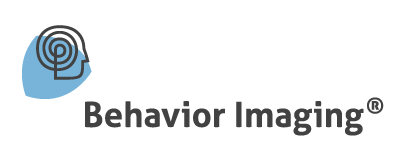Research, Clinicians and Smartphones Answer the Call for Faster & Less Expensive Autism Diagnosis
SARRC and Barrow Neurological Institute at Phoenix Children’s Hospital Collaborate with Behavior Imaging Solutions and Georgia Tech to Launch New Autism Diagnostic Service in Arizona
PHOENIX (February 9, 2015) – The Southwest Autism Research & Resource Center (SARRC) and Barrow Neurological Institute at Phoenix Children’s Hospital (BNI at PCH) today announced their collaboration with Idaho-based Behavior Imaging Solutions and Georgia Tech to launch a new autism diagnostic service that will significantly reduce the time and cost involved in securing an autism diagnosis for children.
Arizona families are the first with access to NODA™, the Naturalistic Observation Diagnostic Assessment, a diagnostic service using smartphone technology and a team of clinicians trained for assessing behavior to confirm or rule out autism.
NODA was developed by Behavior Imaging Solutions, a privately held medical technologies firm, in collaboration with SARRC and Georgia Tech. In the comfort of their own homes, families use a smartphone app to capture video of their child’s behaviors in prescribed situations and upload the videos to a secure site. Expert SARRC clinicians evaluate the patient’s history, review videos, tag symptoms and typical and non-typical behaviors, and render a diagnosis. A diagnostic report and guidance on next steps are issued to the family and can be reviewed with the child’s pediatrician. The process can be completed in two weeks or less.
One in 68 children are diagnosed with autism spectrum disorder, so wait lists for referrals for in-clinic assessments can stretch several months to a year in some cases. With autism, early intervention is critical for reducing and sometimes reversing autism symptoms and complications, so early diagnosis is paramount.
“Early intervention is vital for children with autism and the NODA technology empowers families and connects them to expert diagnosticians faster than current methods,” said Christopher J. Smith, PhD, vice president and director of research for SARRC. “NODA is a great example of how SARRC’s Arizona-based research benefits the local community first.”
Barrow at Phoenix Children’s is collaborating with SARRC and Behavior Imaging to inform and educate pediatric providers statewide about NODA, so providers may offer concerned families this new diagnostic option.
“We want to help more families gain access to early diagnosis and treatment,” said Dr. P. David Adelson, director of Barrow at Phoenix Children’s, which has recently expanded services for children with autism and other developmental conditions with new providers in pediatric psychiatry, psychology and developmental pediatrics. “Early intervention and expert treatment is the key to helping these children reach their full potential.”
“The launch of NODA is the culmination of 12 years of research and effort to develop an effective service that will help worried families get the answers they need and gain access to critical services sooner, at about half the cost of in-clinic testing,” said Ron Oberleitner, president and CEO of Behavior Imaging Solutions, and father of a 22-year-old son with autism.
A National Institute of Mental Health (NIMH) grant funded a series of clinical studies, now in final stages*, to compare NODA to other widely accepted autism spectrum diagnostic procedures and determine accuracy of results. SARRC and Georgia Tech are leading the studies, which included participation by 51 families from the greater Phoenix area – some who suspected their child(ren) may have autism, and some whose children exhibited no developmental delays.
Research findings have demonstrated an 88.2 percent agreement between the NODA and the “gold standard” in-person diagnostic procedure. Complete study findings will be available in early 2015.
“We were excited to play a role in the design and evaluation of this technological solution. This is a great example of how technology can accelerate, and even improve the diagnostic process,” said Agata Rozga, PhD, a research scientist at Georgia Tech and a co-investigator on the project. “Remote diagnosis directly addresses the challenge of access for families who cannot travel or do not want to wait months for an in-person visit.”
Requirements to use NODA include having access to wireless Internet, and to an iPhone, iPad or iPod. Children must be between the ages of 18 months and seven years. NODA is currently offered as a private pay option for a $495 fee. Future plans are to make NODA available through an insurance payment model and on additional mobile platforms, and to offer health assessments for expanded age groups.
“We don’t want to delay. We want to put this important service in the hands of families whose children can benefit from it right now,” said Oberleitner.
Physicians may refer parents and caregivers to NODA, or families may access the service directly. To learn more about NODA or to sign up for the NODA service, visit /NODA or call (855) 649-NODA.
About the Collaborators:
Southwest Autism Research & Resource Center (SARRC)
Established in 1997, the Southwest Autism Research & Resource Center (SARRC) is an internationally recognized nonprofit organization dedicated to autism research, education, evidence-based treatment, and community outreach. SARRC is one of the only autism organizations in the world that provides a lifetime of services for individuals and their families while conducting cutting-edge research. More information is at http://www.autismcenter.org.
Barrow Neurological Institute at Phoenix Children’s Hospital
Barrow Neurological Institute at Phoenix Children’s Hospital is the largest pediatric neurosciences program in the Southwest and the only such program in Arizona recognized by U.S. News & World Report’s Best Children’s Hospitals. Barrow specializes in the treatment of pediatric neurological disorders providing inpatient, outpatient, trauma, and emergency care to children and families in the Southwest and from around the world. Barrow is dedicated to improving the health and quality of life of children with neurological and behavioral disorders and diseases. For more information, visit barrow.phoenixchildrens.org.
Georgia Institute of Technology
The Georgia Institute of Technology, also known as Georgia Tech, is one of the nation’s leading research universities, providing a focused, technologically based education to more than 21,500 undergraduate and graduate students. Georgia Tech has many nationally recognized programs, all top-ranked by peers and publications alike, and is ranked in the nation’s top 10 public universities by U.S. News and World Report. It offers degrees through the Colleges of Architecture, Computing, Engineering, Sciences, the Scheller College of Business, and the Ivan Allen College of Liberal Arts. As a leading technological university, Georgia Tech has more than 100 centers focused on interdisciplinary research that consistently contribute vital research and innovation to American government, industry, and business. For more information, visit http://www.gatech.edu/.
Behavior Imaging Solutions
Behavior Imaging Solutions develops imaging and digital health solutions that lead to earlier diagnosis and better treatment options for a variety of behavioral health and special education applications. The company’s revolutionary ‘EHR-light’ video platforms enable remote health and education assessments, improved clinical trial coordination, and the NODA™ remote autism diagnostic assessment service. For more information, visit https://behaviorimaging.com.
*Research reported in this publication was supported by the National Institute of Mental Health of the National Institutes of Health under Award Number R44MH099035. The content is solely the responsibility of the authors and does not necessarily represent the official views of the National Institutes of Health.




